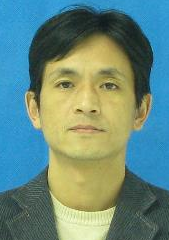

Assoc. Prof. Wu Hao (吴昊)

Name: Assoc. Prof. Wu Hao (吴昊)
University/Department: School of information engineering, northwest agricultural and Forestry University
Research Area: Biological big data mining, complex network, computational bioinformatics, deep learning, machine learning.
Personal Website:
https://cie.nwsuaf.edu.cn/szdw/fjs/2008117156/index.htmlSpeech Title: Network-Based Methods for Mining Pathogenesis Pathways in Cancer
Abstract:
Network medicine is the application of network science towards identifying, preventing, and treating diseases. This field focuses on using network topology and network dynamics progression process towards identifying pathogenesis of diseases, finding drug targets, developing medical drugs and so on. This study presents a network-based model for overlapping driver pathway mining algorithm (NBM) through the construction of gene interaction networks. The new algorithm uses a greedy clustering strategy to add or delete nodes, which improves the computational efficiency and reduces the time complexity. NBM may directly detect driver pathways from somatic mutation data in cancer, without any prior knowledge. Driver pathways detected by NBM have higher enrichment, statistical significance and biological relevance. Due to the time variations in detecting patients’ cancer, clinically it is difficult to obtain the mutation data in multiple stages of the same patient’s cancer progression. This paper proposes a network-based progression pathways-mining algorithm (NetInf) through constructing gene interaction networks with a large number of patient samples data. The algorithm mine cancer progression pathways from a large number of cancer patients, which is conducive to diagnose the stage of disease for clinicians, and to carry out corresponding therapy and drug targets. The method improves the computational efficiency and reduces the time complexity by constructing the mutually exclusive gene network. The comparison with other algorithms shows that the pathways detected by NetInf have higher enrichment, thus providing new insights and approaches to studying the different stage of mutation gene set in cancer progression.
